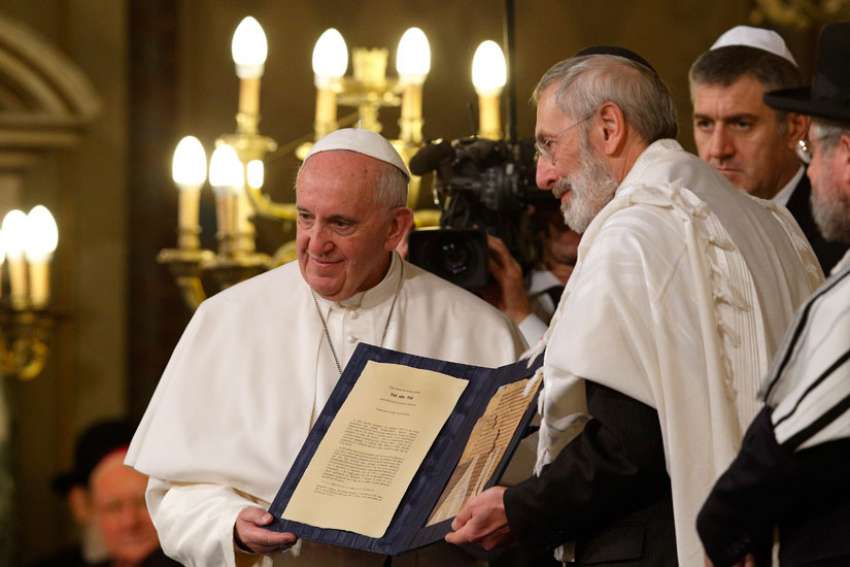The Pope's attention to Jewish-Christian dialogue continues to be welcomed by the Jewish community in Rome, and events such as the concert is one way they can contribute to that dialogue, Richard Di Castro, president of the Ha-Kol Choir Association, told CNA.
“I believe that music can speed up the dialogue between all cultures and among all religions, and is a common thread that is understood in all latitudes and in all parts of the world,” Di Castro said.
“All the more so, the privileged nature of the dialogue that Jews and Christians have at this time, events like this where we can share our traditions, our musical culture, helps considerably in the dialogue.”
The concert, which consisted of musical interpretations of the Psalms in both the Jewish and Christian traditions, took place just a few days after the one year anniversary of Pope Francis' visit to the synagogue on Jan. 17, 2016.
Pope Francis was the third-ever Roman Pontiff to visit the Great Synagogue, following the example of his two predecessors. St. John Paul II visited in 1986 and Benedict XVI in 2010.
Di Castro said that he considers Pope Francis' visit, as well as the visits of the other two popes, very important.
“All this is definitely welcomed with much attention, very welcomed by our entire community. Furthermore, I believe that Pope Francis has always shown a lot of attention to the dialogue between Jews and Christians, and this clearly was always perceived very positively by our community,” he said.
The reason the songs in the concert focused on the Psalms, he said, is because the Psalms are “something that binds us together, something common to the two religious traditions.”
This isn't the first time the two choirs have collaborated on events, Di Castro pointed out, saying “there is nothing better than the dialogue of music that unites cultures” and helps people to know and understand each other better, and eliminate prejudice.
Jesuit Fr. Philipp Renczes, Director of the Centre for Judaic Studies and Jewish-Christian relations at the Pontifical Gregorian University, agreed.
Getting to know one another is the “first major step” to unity, he told CNA. “Because as Augustine says...we can only love what we know.”
It is essential, Fr. Renczes said, that “Christianity, being rooted in Judaism,” be in dialogue with Judaism. “It is a way for Christianity to be in continuity with itself.”
During his 2016 visit, Pope Francis referred to St. John Paul II’s reference to the Jewish people as the “elder brothers” of Christians, and said that “we all belong to one family, the family of God, who accompanies and protects us as his people.”
“Together, as Jews and as Catholics,” he continued, “we are called to assume our responsibility for this city, making our contribution, first of all spiritual, and favouring the resolution of our diverse problems.”
“I hope that the closeness, mutual understanding, and respect between our two communities of faith always continue to increase.”
(Story from the Catholic News Agency)


